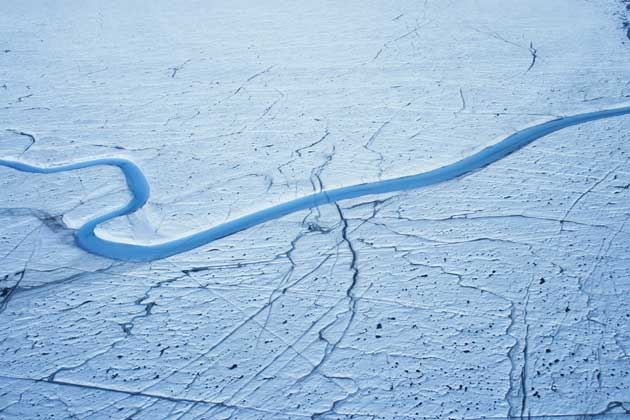Obama brings US in from the cold
In a landmark speech, the next president pledges to revive Kyoto Protocol and end American isolationism over climate change

Prospects for success in the world's struggle to combat global warming have been transformed at a stroke after US President-elect Barack Obama made it clear that America would play its full part in renewing the Kyoto Protocol climate-change treaty.
His words, in effect, brought an end to eight years of wilful climate obstructionism by the administration of George Bush, who withdrew the US from Kyoto in March 2001, thus doing incalculable damage to the efforts of the international community to construct a unified response to the threat.
The Bush withdrawal set back the international effort by nearly a decade – years in which it became increasingly clear that the warming of the atmosphere being caused by greenhouse gas emissions was proceeding much faster than UN scientists thought it would.
Although Mr Bush and the oilman-caucus in his government justified their Kyoto withdrawal by casting doubt on whether climate change was happening, or was caused by human actions, by last year the scientific consensus on both propositions was so great that Bush aides had to reluctantly accept both were true. But Mr Bush's diplomatic stance hardly changed. In contrast, the President-elect's remarks, in a video address to a global warming summit in California attended by US governors and representatives from other nations, instantly injected a new mood of optimism among negotiators preparing for the conference at which Kyoto will be renewed and extended, due to take place in Copenhagen in December 2009.
"This is an incredibly welcome statement about the need not to delay, and it will send a very positive message around the world, especially to the developing countries," said a British source involved with negotiations.
The Obama message was clearly timed to influence the interim negotiating meeting being held in Poznan, Poland, next month, which Mr Obama reminded his audience he could not attend, "because the United States has only one president at a time". Mr Bush remains president until the Obama inauguration on 20 January.
But if he will not be present in Poland personally, his latest pronouncement made it clear he will be very much there in spirit. "Once I take office, you can be sure that the United States will once again engage vigorously in these negotiations, and help lead the world toward a new era of global co-operation on climate change," he said. And he went on to make the key pledge that the US would once again accept targets to reduce its own emissions of carbon dioxide and other greenhouse gas emissions, which – alongside China's – are the highest in the world.
"We will establish strong annual targets that set us on a course to reduce emissions to their 1990 levels by 2020 and reduce them by an additional 80 percent by 2050," he said. Mr Obama had made his support for action clear as a presidential candidate, but he has now spelled out new yearly targets. It signals that the US is at last coming in from the cold – and that is the essential prerequisite for success at Copenhagen, which will try to map out a way for the world to hold global temperature rises to two degrees celsius above the pre-industrial level – regarded as the maximum the earth and its human communities can safely sustain.
The trick will be to balance the burden-sharing – in essence, to get the US and China to act together, when each has been concerned about the other trying to get a free ride. It has to be the US that takes the lead and Mr Obama recognised that explicitly. "My presidency will mark a new chapter in America's leadership on climate change that will strengthen our security and create millions of new jobs in the process," he said.
His words were instantly applauded as "fantastic" by California's Republican governor Arnold Schwarzenegger, a leading force for environmental changes in the face of White House obstinacy.
"These were inspirational words from Obama," said Frank O'Donnell of Clean Air Watch. "He basically said that, even though the world economy is less than healthy, global warming remains an absolutely top priority. It means the United States is now ready to take on a leadership role in combating climate change." Behind Mr Obama's words is the big idea that energy-hogging is at the root of US economic problems at home and security problems abroad. America's gluttonous oil consumption is unsustainable, damaging the environment and making the country dependent on unstable parts of the world for its energy which, in the end, has become a threat to its national security.
Mr Obama says he is committed to pumping $150bn into transforming the economy to cut oil consumption dramatically and reduce greenhouse gas emissions. He wants to start with US car manufacturers – which already need rescuing – to ensure they make hybrid or petrol-sipping cars.
Join our commenting forum
Join thought-provoking conversations, follow other Independent readers and see their replies
Comments
Bookmark popover
Removed from bookmarks